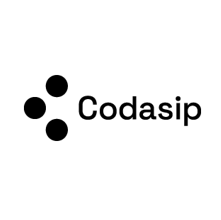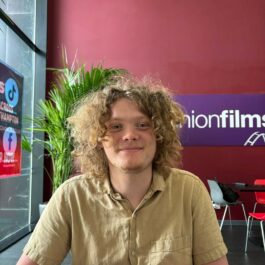Codasip
At our UK design centre we create and customise RISC-V processor cores using Codasip Studio for our customers worldwide.
Our Scholarships
Placement Location
Cambridge or Bristol
Type of Placements Offered
• Summer placements only
Restrictions/Notes
(1) No first year students; (2) HW-based (CPU architecture, design, verification) role; (3) Preferred placement location is Cambridge
2024/25 Scholarships
One new scholarship
Who we are and what we do

Codasip was founded on a simple belief – that we could bring together the brilliance of microprocessor architects and software engineers and capture it in tools that made design simpler, faster, and less expensive. Codasip Studio was born in 2014 with the mission of automating processor design.
Codasip Studio is a complete, highly automated toolset for designing and customising processor cores. Whether you need to create a new core or optimise an existing one, Codasip Studio makes the task unbeatably fast and easy, with reliable results.
Codasip Studio employs a revolutionary approach: one single high-level description of the processor replaces multiple manual tasks of writing the RTL, adding any custom instructions, updating the compiler, etc. Unlike similar tools, Codasip Studio generates the design implementation, verification environment, virtual system prototype, and a complete software toolchain fully automatically. The design methodology is protected by patents and we use it ourselves to create the Codasip processor IP.
At Codasip we use Studio to develop our own series of ready-made RISC-V processor core designs that can be deployed in standard configurations or extended and configured in Codasip Studio for a tailored result. At our UK design centre we create and customise RISC-V processor cores using Codasip Studio for our customers worldwide.
What you could be doing during your work placement
Codasip develops a portfolio of RISC-V based processors, easily customizable using a unique toolset, Codasip Studio. Placements are available in our established and growing design centres in Bristol and Cambridge.
You will be assigned to a design team developing our next generation of RISC-V processor cores, or performing customisation work for an existing core. The work will be meaningful and project related, using the latest EDA tools for silicon design. Work could be on architecture, design and verification activities and we are looking for enthusiastic people with a willingness to learn and contribute. You will be assigned a mentor who will guide you through your placement and help you develop your skills beyond those which can be learned in a lecture theatre environment.
Meet one of our Scholars

Name: Bob
Sponsor: Codasip
University: University of Southampton
Degree Course: MEng Electronic Engineering with Computer Systems
What appeals to me about Electronics
I love how electronics can be used to create complex systems that can fit in the palm of your hand. The ability to be faced with a problem and find a solution that you can prove to be correct is immensely satisfying, and will be an itch I always need to scratch. It’s hard to not look at the world around us and enjoy understanding how it has come together using electronics.
My experience working for Codasip
Codasip appealed to me as they felt like a family, and my time there confirmed that. The work that they do is industry leading in many areas of CPU design, and yet the scale is such that you can talk to an expert of each part, all in the same room. I took a number of modules in University that primed me for IC design work; I was intrigued by the projects I had completed, and that lead me to research and find a company that would let me explore it – Codasip was that company.
My placement
During my placement, I got to work on cutting-edge CPU microarchitectures at every stage of the design process. I interacted with all of the teams at Codasip, and got to see how they work together; for some of them, I had the chance to participate in the work they were doing. My favourite was with the Architecture team: I helped to create a simulator to find the best parameters for a new CPU, and then I designed a framework for running a benchmark program and feeding the execution trace into the simulator. I also spent some time optimising existing RTL for power, performance and area. This work was particularly valuable to me, as it was my first chance to be outside of an educational setting – to do something that would be used in the real world.
My interests outside of work
I enjoy listening to music on my record player, and my collection is always growing. I also love going to my local station for some trainspotting – my favourite train is the Class 43.